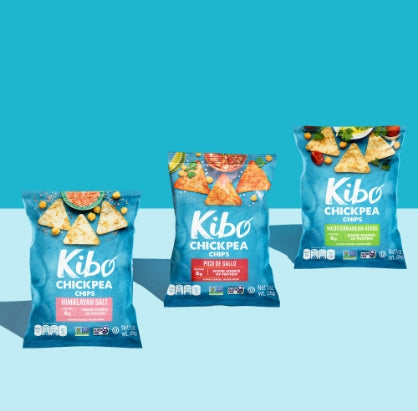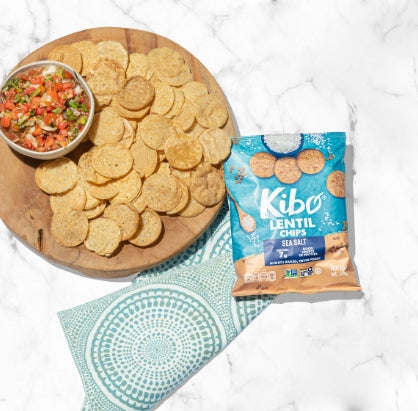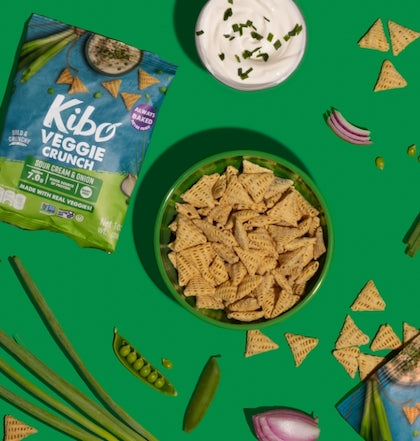The importance of protein in your diet can’t be overstated, and one of the most common complaints from people who are looking to shift toward a more sustainable, plant-based diet is that it can sometimes seem difficult to meet their body’s protein needs or to even be able to accurately define what those needs are.
But look no further—ahead, we’ll go over the recommended protein intake, explore some of the vital functions performed by protein-rich foods, and we’ll also highlight some of the best ways to go about getting as much plant-based protein as possible. But first, we’ll start with the basics: what exactly IS this macronutrient and why is it so essential to our health?
Protein 101
Let’s go back to science class for a second: Proteins are large molecules that perform a number of vital functions in the body. From providing structure to cells, to transporting molecules to different parts of the body, proteins play an essential role in a wide variety of the body’s processes.
All proteins are made up of amino acids, which are crucial in the process of protein synthesis, or the process by which cells create proteins. Any source of protein that contains all nine of the essential amino acids is known as a complete protein, (but more on this later).
How much protein do you really need?
The amount of protein you should be eating depends on a number of factors like your age, weight, activity level, and what kind of goals you’re looking to achieve.
The Recommended Dietary Allowance sets the bar for protein intake at .36 grams of protein per pound of body weight, but most people, especially those with active lifestyles, require much more than that, as this figure only reflects the bare minimum recommendation. An optimal level of protein intake would be closer to 100 grams a day for most adults, and for active people who might be looking to build muscle, .73 grams of protein per pound of body weight is a good benchmark to strive for.
It’s important to note that because you naturally start to lose muscle as you age, your protein needs will shift over time to support your changing body composition. Adults over 50 should look to consume .54-.9 grams of protein per pound of body weight a day, as inadequate protein intake in older adults can lead to a depleted immune system, weaker skin, and longer recuperation periods from serious illness.
Benefits of Sufficient Protein Intake
The amino acids in protein are used to repair muscle, build muscle, repair bones, etc, and proteins also transport oxygen throughout the body and help us maintain healthy energy levels. While it would be difficult to list in a single article all of the ways protein is important, it’s fair to say that it’s absolutely essential in supporting muscle growth and repair, boosting metabolism, aiding weight management, enhancing satiety and reducing hunger.
Supporting Muscle Growth and Repair
You’ve probably heard that in order to build muscle, it’s a good idea to pack in as much protein as possible either immediately before or after a workout. This is because the amino acids, often referred to as the building blocks of protein, help repair and preserve muscle tissue. During intense workouts, especially weight exercises, our muscles tear, and amino acids are needed to heal this muscle tissue and allow our muscles to grow. Protein rich foods make sure that your body isn’t burning muscle when you work out.

Boosting Metabolism and Aiding Weight Management
The term thermic effect of food (TEF) refers to the amount of energy it takes your body to digest the different kinds of food you eat. Because calories are burned in order to digest and absorb nutrients, foods with high TEF percentages speed up your metabolism and burn calories in the process.
Protein has a TEF percentage of 20-35%, as opposed to fat and carbohydrates, which have a TEF percentage of 5-10%. This means that 20-35% of the calories that come from the protein you eat are used in the digestive process, increasing the amount of calories you’re burning and speeding up your metabolism, which also makes managing your weight an easier task on the whole.
Your body also needs plenty of dietary protein per day in order to build lean muscle, which is an important metabolic organ for burning fat not just when you exercise but even when you’re inactive in times of rest. Because protein helps build muscle and muscle helps you process carbs and fat more efficiently, protein is a great way to indirectly support healthy weight management in tandem with resistance training.
Enhancing Satiety and Reducing Cravings
You can eat as much as you’d like, but if you’re not making sure your meals include a viable source of protein, you’ll probably feel hungry a lot sooner than you otherwise would. When you don’t consume enough protein, your appetite spikes sooner because the body is trying to make sure it’s getting enough amino acids.
Another unfortunate side effect of not eating enough protein is that the body will consume more of the energy it’s already storing and deplete your energy levels. Protein also helps reduce the hunger hormone ghrelin, so eating a hearty, protein-rich meal early is always a safe bet.
Tips for Meeting your Protein Goals
Fish, lean meats, poultry, eggs, and dairy like Greek yogurt are all excellent sources of protein, but, like we mentioned before, it can be difficult to satisfy your recommended protein intake, especially when subsisting on a plant-based diet. That said, there are a number of ways to make sure you’re maximizing your protein benefits.
1. Seek out high quality protein
Some of the best high-protein plant-based alternatives are beans, chickpeas, lentils, peas, tofu, seitan, quinoa, nutritional yeast, nuts, seeds, sprouted grains, and spirulina. A few, like tofu, quinoa, chia, hemp, and spirulina, are considered complete proteins because they contain all nine of those essential amino acids.

2. Mix and match
Many plant-based protein sources don’t form a complete protein, however. An easy fix to this is to combine plant-based protein sources like chickpeas and lentils with rice. When combined with rice, both end up forming complete proteins, and the good news is that there are many tried and true recipes that already combine legumes and rice, from curries to mujadara.
Classic combos include whole wheat pita and hummus, peanut butter sandwiches on whole wheat bread, and beans and rice. It just makes sense!
3. Snack strategically
Another way to maximize your protein intake is to increase the amount of protein you eat while snacking. Kibo’s protein-packed, lentil and chickpea chips are great in a pinch. With 6-7 grams of organic, plant-based protein in every bag, they're a great option for helping you meet your daily nutritional goals and reaping all those juicy benefits we talked about.
Protein supplements can also help you pack in protein if you’re facing a deficiency. Along with your protein powder of choice, add extra fixings like nut butter, chia seeds, and spirulina for additional protein in your shakes and smoothies.
TakeawaysWhen looking to live a healthier lifestyle, it’s important to take into consideration the amount of protein you’re getting on a daily basis. If you’re looking to build muscle, remember to think about your weight, age, and lifestyle when determining the amount of protein you need. Try increasing your protein intake in order to boost your metabolism, manage your weight, and reduce your hunger levels. Replacing fat and carbohydrates with rich sources of protein will have a ripple effect on your health overall, and when in doubt, opt for protein-rich snack foods, like Kibo’s protein chips. Now that you understand protein benefits, requirements, sources, and combinations, optimal health is that much closer!
Sources:
 Reviews
Reviews






